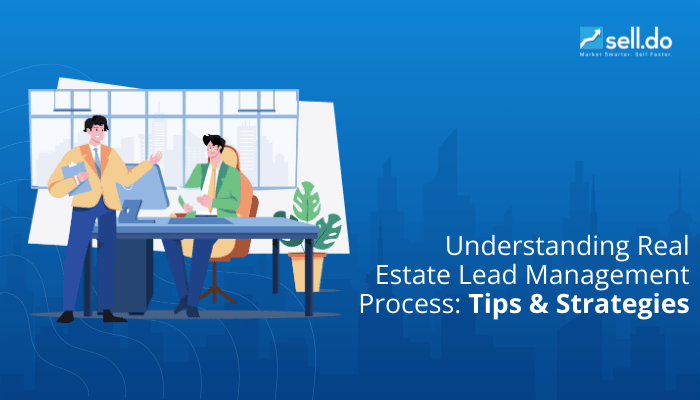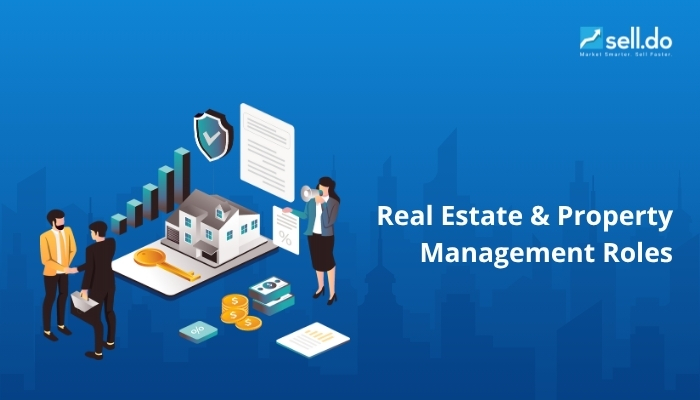Effective lead management is essential for real estate professionals aiming to drive growth and maximize conversions. A well-organized lead management process lets you capture, nurture, and prioritize leads efficiently, ensuring you never miss an opportunity.
As a broker, agent, or developer, mastering lead management can transform the way you interact with clients and make your daily tasks run smoother. Managing leads effectively gives you a significant advantage, helping you stay organized and focused on what matters most—converting prospects into loyal clients.
To help you get started, we have compiled actionable tips and strategies that can improve your lead management process, saving you both time and resources while boosting your conversion rates.
Let’s get started!
The Lead Management Process

A well-defined process ensures that every lead is captured, tracked, qualified, nurtured, and converted effectively. Let’s break down each key step in the lead management process for real estate professionals:
-
Lead Generation
For real estate professionals, lead generation is all about casting a wide net and drawing in potential buyers, sellers, or renters. Here’s how you can generate leads effectively:
- Content Marketing: Use blogs, property guides, and case studies that provide valuable information to your target audience.
- Search Engine Optimization (SEO): Optimize your website and content for relevant real estate keywords to ensure you're visible when potential clients search for properties or services.
- Paid Advertising: Run targeted ads on platforms like Google, Facebook, or Instagram to reach individuals who are actively looking for real estate solutions.
- Referral Programs: Encourage current clients or tenants to refer others to you in exchange for incentives. Word-of-mouth marketing can be a powerful lead generator.
- Partnerships: Team up with local businesses, developers, or real estate portals to expand your reach and get introduced to potential leads.
-
Capturing Leads
Once you have attracted potential clients, the next step is to capture their details. For this, you can use the following strategies:
- Optimized Web Forms and Landing Pages: Offer something of value in exchange for contact details—such as downloadable brochures, eBooks, or access to virtual tours.
- Social Media Lead Capture: Use lead forms directly on platforms like Facebook and Instagram, where you can easily convert ad traffic into contacts.
- Event Sign-Ups: Whether you're hosting an open house or a webinar, collecting leads at events through digital registration forms can help you expand your contact list.
- CRM Integrations: Ensure all your lead capture methods (website forms, social media, events) are connected to a good CRM such as Sell.Do to avoid losing leads and to automate follow-ups.
-
Lead Tracking
After capturing the leads, tracking their interactions is essential. You can do this with the help of the following steps:
- Website Behavior: Tools like Google Analytics or your CRM’s tracking features can reveal which properties a lead is interested in or which content they engage with the most.
- Email Engagement: Tracking how often leads open and click through emails will give you a better idea of where they are in their decision-making process.
- Follow-Up Reminders: Set up automatic reminders in your CRM to follow up with leads after key interactions—like property views or downloaded content.
-
Lead Qualification
Lead qualification helps you focus on the leads most likely to convert. Here’s how to assess the quality of each lead:
- Interest Level: How engaged is the lead? A lead who requests property details is likely more interested than a lead who is just browsing.
- Budget and Financial Capacity: For buyers, assess their budget, financing options, and ability to close the deal.
- Time Frame: Determine how soon the lead plans to act. Someone looking to buy in a month may feel more urgency than one considering a move in six months.
- Lead Scoring: Implement lead scoring in your CRM to rank leads based on their actions and engagement to further prioritize outreach.
-
Lead Distribution
Effective lead distribution means ensuring that the right agent is assigned to the right lead. Here’s how to optimize it:
- Assign Based on Expertise: Direct high-end property inquiries to an agent with experience in that market or a first-time buyer to an agent who specializes in guiding newcomers.
- Geographical Assignment: Distribute leads based on location, especially if your agents specialize in particular neighborhoods.
- Round-Robin or Automated Routing: Sell.Do's CRM system automates lead assignment based on predefined rules or rotating schedules, ensuring no leads are left behind.
-
Lead Nurturing
Lead nurturing is about keeping potential clients engaged and guiding them through their decision-making process. Here are some effective lead nurturing techniques:
- Personalized Communication: Tailor your communication based on the lead’s interests and stage in the buying or selling process. For instance, send detailed property information to a buyer who’s shown interest in similar listings.
- Follow-up Calls and Emails: Regular, personalized follow-ups help maintain interest. Send check-in emails or offer additional resources, such as market insights or property recommendations.
- Exclusive Offers: Offer exclusive deals, such as early access to new listings or discounts for first-time clients, to make leads feel valued.
- CRM Automation: Set up automated workflows in your CRM to send timely messages, such as birthday greetings, property updates, or reminders based on lead activity.
Now that we've covered the lead management process, let's take a look at the different types of leads you’ll encounter and how to approach each one.
Types of Leads

Knowing the different types of leads is key to a successful lead management process and higher conversions. Leads vary in interest and readiness to buy, so understanding how to categorize them helps you focus your efforts where they count.
-
Leads by Temperature
Leads can be classified based on their level of interest and readiness to engage:
- Cold Leads: These are individuals who have shown minimal interest or interaction. They may have inquired in the past but are not actively looking for properties. Cold leads require nurturing through follow-ups and relevant content.
- Warm Leads: These leads have shown some interest, such as attending an open house or requesting property details. They're still in the early stages but are more likely to convert with targeted communication and personalized offers.
- Hot Leads: Hot leads are actively looking to buy or sell a property and are ready to make decisions. These leads require immediate attention and a quick follow-up to seal the deal.
-
Leads by Qualification
Leads can also be categorized based on their level of qualification:
- IQLs (Information Qualified Leads): These leads have shown interest by seeking general property information or subscribing to newsletters. They’re at the top of the funnel and need nurturing with relevant content.
- MQLs (Marketing Qualified Leads): These leads have engaged more deeply, such as downloading property brochures or attending webinars. They're a step closer to making a decision but still need additional follow-up.
- PQLs (Product Qualified Leads): These leads have directly interacted with your real estate services—maybe by scheduling a property tour or using a mortgage calculator. They’re showing a clear interest in your offerings and require more personalized engagement.
- SQLs (Sales Qualified Leads): These leads have demonstrated strong buying intent, such as pre-approval for a mortgage or serious discussions about closing a deal. They are ready for direct sales interaction.

-
Leads by Acquisition Point
Leads can also be grouped based on how they found your services:
- Organic Leads: These leads discover your business naturally through search engines, blogs, or organic social media posts. Since they found you on their own, organic leads tend to be highly engaged and indicate a genuine interest in your services.
- Inbound Leads: Inbound leads are warm and qualified prospects who reach out to you after engaging with your content. This could be submitting a contact form, requesting property details, or downloading resources like guides or eBooks. Inbound leads have already shown interest in what you offer, making it easier for you to nurture them into clients.
- Outbound leads are generated through proactive outreach, such as cold calling, email campaigns, or direct mail. While they may require more effort to convert, they offer targeted communication opportunities and can help you reach specific audiences or markets.
- Referral Leads: Referral leads come through word-of-mouth, often from past clients, colleagues, or industry contacts. Because a trusted source recommends them, these leads tend to be of higher quality and are more likely to convert into long-term clients.
Now that we understand lead types clearly, we can focus on the best practices for managing them effectively.
Best Practices for Leads Management
Here are some strategies that can help you optimize your lead management process and stay ahead in a competitive market:
- Develop a Systematic Approach: A structured process for managing leads ensures that every lead is tracked, followed up on, and nurtured at the right stage. Establishing clear steps helps avoid missed opportunities and keeps the team aligned, leading to better consistency and efficiency.
- Align Marketing and Sales: Marketing should generate high-quality leads while sales teams focus on converting them. Working together ensures smoother transitions, clearer messaging, and a unified approach to nurturing prospects, which enhances the overall customer experience.
- Use Clean and Accurate Data: Inaccurate or outdated data can derail your lead management efforts. Ensure your CRM has up-to-date information about clients' preferences, needs, and behaviors.
- Automate Lead Processing: Automated workflows ensure leads are attended to promptly, reduce manual errors, and allow agents to focus on building relationships and closing deals.
- Prioritize and Qualify Leads: Qualified leads are more likely to convert, so assessing each lead’s fit early on helps save time and resources by focusing on the right prospects.
- Nurture Leads Continuously: Regularly engage with leads through targeted emails, calls, or personalized content. Even if a lead isn’t ready to buy immediately, keeping in touch and providing value ensures they stay warm and are more likely to convert in the future.
- Monitor Lead Behavior: Track how leads interact with your content, such as whether they view properties, download brochures, or engage with emails. This helps gauge their readiness to buy and allows you to adjust your follow-up strategy with timely, relevant information.
- Measure and Optimize Your Lead Management Process: Continuously evaluate your lead management process to identify bottlenecks or areas of improvement. Tracking metrics such as conversion rates, response times, and lead sources can help refine strategies, allowing you to stay competitive and maximize your ROI.
Once the best practices are in place, the right tools and technologies can make managing leads even more efficient and effective.
How to Organize Real Estate Leads?
Organizing your real estate leads effectively ensures you leverage every opportunity and can follow up at the right time. Here's how to streamline the process:
- Categorize by Lead Type: Group leads into categories based on their source and intent—such as buyers, sellers, and renters so that you can tailor your approach to each group.
- Use Lead Scoring: Implement a scoring system to prioritize leads based on their engagement level, budget, and urgency. This will allow you to focus on high-potential leads first.
- CRM for Centralized Management: Use a CRM system to centralize all your lead data. With automated tracking and segmentation, you’ll have easy access to all lead information in one place.
- Set Follow-Up Reminders: Schedule reminders for follow-ups based on lead behavior or interest level, ensuring timely and personalized outreach and keeping you top-of-mind.
- Regularly Update Lead Status: Track each lead’s status—whether they’re cold, warm, or hot—so you can adjust your communication strategy accordingly.
Implement Sell.Do CRM To Enhance Lead Management for Real Estate

Effective lead management starts with the right CRM solution and Sell.Do is designed to help real estate professionals manage leads seamlessly and efficiently. By automating tasks, centralizing communication, and providing real-time insights, it simplifies the entire lead management process. Here's how Sell.do can help real estate agents, brokers, and developers enhance their lead management efforts:
- Centralized Lead Management: Track all leads from various sources, including 99acres, Sulekha, and Housing, in one place for easy management and follow-up.
- Automated Follow-ups: Set up automatic reminders and workflows for timely, consistent communication without manual effort.
- Multi-channel Communication: Communicate with leads across email, calls, chat, and social media—all from within Sell.Do.
- Lead Scoring and Segmentation: Automatically score and segment leads based on their behavior, helping you focus on high-potential prospects.
- Real-time Analytics and Reporting: Monitor lead progress and campaign performance with real-time reports to optimize strategies.
- Task and Activity Automation: Automate tasks like sending listings or follow-up reminders to free up more time for relationship-building.
With Sell.Do, real estate professionals can streamline their operations, improve lead nurturing, and boost conversions, all while saving time and resources.
Conclusion
Effective lead management is an ongoing process that requires constant refinement. By regularly analyzing your strategies, you can stay ahead of the competition and improve your lead conversion. However, the work doesn't end once a lead is converted. Nurturing long-term relationships with clients after the sale is key to repeat business and referrals.
A reliable CRM like Sell.Do is the perfect solution for real estate professionals, providing a centralized platform for lead tracking, communication, and automation. With Sell.Do, you can streamline your entire lead management process, improve customer experience, and drive long-term success in the real estate market.










Leave a comment
Comments (0)
Be the first one to comment.